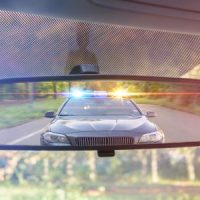What are DWI Traffic Stops?

DWI traffic stops usually don’t start as DWI traffic stops. Instead, in most cases, a police officer pulls over a motorist for a traffic violation and then conducts a DWI investigation. The officer must have reasonable suspicion for both the stop and the investigation. Basically, reasonable suspicion is an evidence-based hunch of criminal activity.
The Supreme Court has watered down the reasonable suspicion rule in recent years. But each time, the Supremes stopped short of overturning this rule. If officers lacked reasonable suspicion for the stop or investigation, a Leesburg criminal defense lawyer can exclude this information at trial. Without the reasonable suspicion stop and investigation foundation, the state’s case often collapses.
Traffic Stops
The Virginia Traffic Code is so long and complex that most people cannot drive more than about a mile without violating at least one provision. Some DWI traffic stops we see frequently are:
- FMSL: Failure to maintain a single lane, or weaving, is one of the most common DWI traffic stops. Intoxicated people have poor judgement and motor skills. Therefore, staying in the lane is difficult. Because of the aforementioned watering down, many officers get some leeway. For example, they may pull over drivers who weave inside their own lanes, even though that practice isn’t illegal.
- Speed Variations: Speeding may be the most common traffic stop, not just the most common DWI traffic stop. One court approved a speeding stop even though the driver was traveling only 1mph above the limit. Traveling well below the speed limit is also illegal in Virginia and also a possible indication of intoxication.
- Non-Moving Violation: Here’s a fun little game we sometimes play when we’re bored. We look at vehicles in parking lots and determine how many are street legal based on their appearances. Usually about a third are illegal, mostly because of a dangling object, like a crucifix, that obscures the driver’s view, an unsecured license plate, or a license plate frame that hides some information on the plate.
Heavy window tint is an honorable mention DWI traffic stop. The law prohibits tint above a certain percentage. If the officer’s assessment of that percentage is anywhere close to right, the court usually upholds it.
Profiling traffic stops are different. If Officer Lisa let four cars with illegal license plates pass by and pulled over Sam, who just left a bar, because of an illegal plate, she most likely profiled him.
Furtive movement DWI stops are also illegal. When drivers glance nervously into rearview mirrors or otherwise act suspiciously, the officer has a hunch of criminal activity, but not an evidence-based hunch.
DWI Investigations
The stop is just the beginning. After the DWI stop, the officer usually looks for physical symptoms of alcohol consumption, such as:
- Odor of alcohol,
- Bloodshot eyes,
- Slow reflexes,
- Slurred speech, and
- Unsteady balance.
Individually, these things prove nothing. People often lose their balance due to nervousness or poor eyesight. But since the burden of proof is so low at this point, the whole of this evidence is greater than the sum of its parts.
Defendants’ statements are usually inadmissible at this point. When an officer pulls over a motorist and asks questions, the Fifth Amendment’s protections kick in, since the defendant is under custodial interrogation.
Connect With a Thorough Loudoun County Lawyer
There’s a big difference between an arrest and a conviction in criminal law. For a confidential consultation with an experienced criminal defense attorney in Leesburg, contact Simms Showers, LLP, Attorneys at Law. Convenient payment plans are available.
